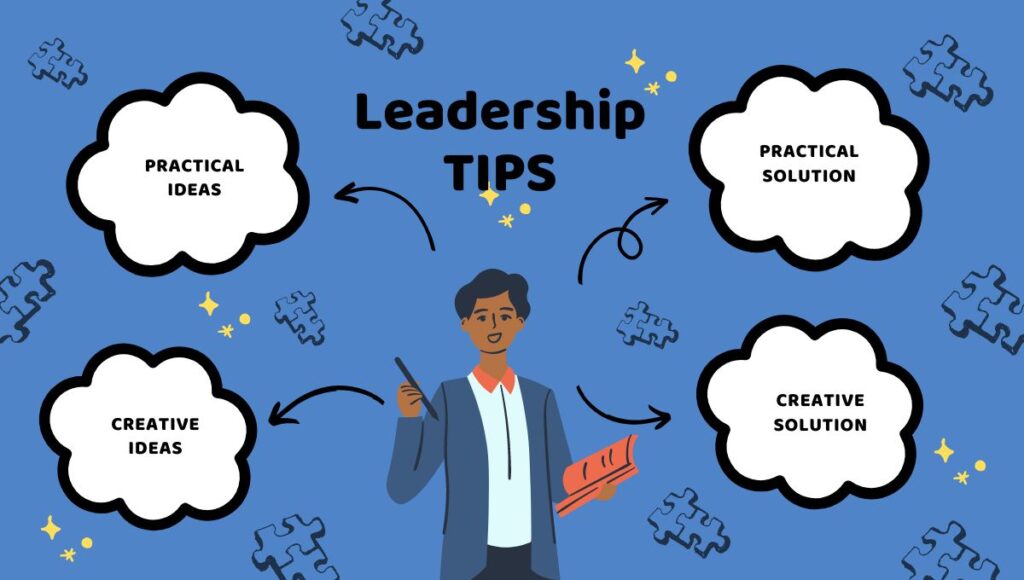Building a Personal Brand: The Journey of Ankit and Akash

Once upon a time, in the bustling city of Mumbai, there lived two ambitious individuals named Ankit and Akash. Both were driven by the desire to excel in their careers and make a name for themselves. Little did they know that their paths would cross, leading them on a transformative journey of personal brand-building.
Chapter 1: A Chance Encounter

Ankit and Akash first met at a local networking event. Ankit, a talented graphic designer, impressed everyone with his unique artistic style and innovative ideas. Akash, on the other hand, was a charismatic sales professional with excellent communication skills. They struck up a conversation and soon realized they shared a common goal—to build a personal brand that would propel their careers forward.
Chapter 2: Defining Their Personal Brands

Inspired by their encounter, Ankit and Akash decided to define their brands. Ankit wanted to be known as the go-to designer for visually stunning and user-friendly websites, while Akash aimed to position himself as the trusted advisor who helped businesses increase their sales through effective strategies. They understood that their brands would be their calling cards, setting them apart from their competitors.
Chapter 3: The Power of Online Presence

Recognizing the importance of a strong online presence, Ankit and Akash embarked on creating their professional websites and engaging social media profiles. Ankit showcased his design portfolio, sharing his creative process and insights. Akash wrote informative blog posts on sales techniques and provided valuable tips to his target audience. They both leveraged relevant keywords, including “personal brand,” to optimize their content for search engines.
Chapter 4: Providing Value through Content

Ankit and Akash understood that providing value through content creation was key to building their personal brands. Ankit started a YouTube channel where he shared tutorials on graphic design techniques. He also wrote blog posts offering advice on choosing the right color schemes for branding. Akash, on the other hand, recorded podcasts featuring interviews with successful sales professionals and shared practical tips on negotiating deals. Their consistent efforts to deliver valuable content positioned them as experts in their respective fields.
Chapter 5: Networking and Collaboration

Realizing the power of networking, Ankit and Akash actively attended industry events, joined professional associations, and engaged with influencers. They connected with other professionals who shared their passion for personal brand building. Ankit collaborated with a web developer to create visually appealing websites, while Akash partnered with a marketing consultant to conduct workshops on effective sales strategies. By collaborating and expanding their networks, they opened doors to new opportunities and expanded their reach.
Chapter 6: Cultivating an Online Reputation

Ankit and Akash were mindful of cultivating a strong online reputation. They promptly responded to comments and messages, demonstrating their professionalism and dedication. They actively sought testimonials from satisfied clients, which they proudly displayed on their websites. By consistently delivering exceptional work and engaging with their audience, they built a positive online reputation that enhanced their personal brands.
Chapter 7: Embracing Continuous Growth

As their brands flourished, Ankit and Akash understood the importance of continuous learning and growth. They attended workshops and conferences, subscribed to industry newsletters, and enrolled in online courses to stay updated on the latest trends and technologies. By continually expanding their skill sets and knowledge, they ensured their personal brands remained relevant and positioned them as thought leaders in their fields.
Personal suggestions and tips from Ankit and Akash:

Be Authentic: Ankit and Akash believe that authenticity is the key to a strong personal brand. Stay true to yourself and let your unique personality shine through in your brand messaging and interactions.
Define Your Unique Selling Point: Determine what sets you apart from others in your field. Identify your strengths, skills, and passions, and use them to differentiate yourself and create a compelling personal brand.
Be Consistent: Maintain consistency in your brand messaging, visual identity, and tone of voice across all platforms. Consistency builds trust and helps your audience recognize and remember your personal brand. To be consistent you need to be prioritized in your day to day life.
Provide Value: Focus on providing valuable content and insights to your target audience. Share your knowledge and expertise generously through blog posts, videos, podcasts, or social media. By providing value, you establish yourself as a trusted authority in your field.
Engage with Your Audience: Be active in engaging with your audience by responding to their comments, messages, and inquiries. Show genuine interest in their needs and concerns, and foster meaningful connections. Engaging with your audience builds loyalty and strengthens your personal brand.
Collaborate with Others: Seek opportunities to collaborate with professionals in complementary fields. By collaborating, you can expand your network, tap into new audiences, and gain exposure to different perspectives. Collaborations also add depth and diversity to your personal brand.
Seek Feedback and Learn from Mistakes: Ankit and Akash emphasize the importance of seeking feedback from clients, colleagues, and mentors. Learn from constructive criticism and use it to refine your personal brand. Embrace mistakes as learning opportunities and continuously strive to improve.
Stay Updated: Keep up with the latest trends, technologies, and developments in your industry. Attend conferences, workshops, and webinars, and invest in your professional development. Staying updated ensures that your personal brand remains relevant and positions you as a knowledgeable expert.
Network Strategically: Be selective in your networking efforts. Attend events and join communities where you can connect with individuals who align with your personal brand values and goals. Nurture genuine relationships that can lead to collaborative opportunities and career advancements.
Embrace Your Passion: Let your passion shine through in your personal brand. When you are genuinely passionate about what you do, it becomes infectious and attracts others to your brand. Passion fuels your drive for success and helps you stand out in a crowded marketplace.
By incorporating these suggestions from Ankit and Akash, you can take significant strides in building a strong and influential personal brand that propels your career forward.
Conclusion: The Unleashing of Personal Brands
Ankit and Akash’s commitment to building their personal brands paid off. Their unique talents, combined with strategic personal branding efforts, brought them success in their careers. Ankit’s designs were sought after by renowned companies, and Akash became a trusted advisor to top sales teams. Their stories became an inspiration for others seeking to build their personal brands.
Embarking on the journey of personal brand building, Ankit and Akash discovered that by defining their personal brands, establishing a strong online presence, providing value through content, networking and collaborating, cultivating a positive online reputation, and embracing continuous growth, they could achieve remarkable career advancement.

FAQs
How long does it take to build a personal brand?
Brand Building is a continuous process that evolves over time. It may take several months or even years to establish a strong personal brand. Consistency and persistence are key.
Can I build a brand while working full-time?
Absolutely! Building a brand can be done alongside your full-time job. Dedicate specific time slots to work on your brand, such as evenings or weekends. Consistency and effective time management are essential.
Is it necessary to hire a professional to build my personal brand?
While hiring a professional can provide valuable guidance, it is not a necessity. With the right resources, research, and dedication, you can build a brand on your own. However, seeking expert advice can help expedite the process.
How important is social media in building a personal brand?
Social media plays a significant role in building a personal brand. It provides a platform for networking, content sharing, and establishing your online presence. Utilize social media strategically to enhance your personal brand.
Can a brand benefit entrepreneurs and freelancers?
Absolutely! Building a personal brand is beneficial for entrepreneurs and freelancers. It helps establish credibility, attract clients or customers, and differentiate themselves in a competitive market. Now that you’re armed with knowledge and inspiration, take the first step on your yoga journey. Embrace the physical, mental, and spiritual benefits of yoga and allow it to transform your life, one asana at a time.




Hi. I am a home maker. Can I build a personal brand, while manage my home and family?
Yes definitely! Find your area of expertise and start sharing your knowledge and insights with others through social media. There is a community out there for everyone, so find the right platforms to reach your people. I’m excited to launch my new time management blog soon. I’ll be sharing tips and strategies on how to manage your time effectively, so you can get more done and live a more balanced life. Please subscribe to get notification as soon as possible.
Sir,
It was refreshing to read this blog.
Sir can you kindly tell me that how a person like me who is interested in music can build a business as a beginer into this field and can expand this to that extent that it becomes a income source
Thank you so much for such a positive feedback. Of course! Building a business in the music industry can be a fulfilling and rewarding journey. Well, I don’t specifically have an experience in music industry but the basic rules are same for any industry so, from my experience, I can give some steps to follow for a beginner like you to start and expand your music-related business into a potential income source:
Find Your Niche: Decide on the specific aspect of the music industry you want to focus on, whether it’s performing as an artist, teaching music, music production, instrument sales, or event management.
Develop Your Skills: Dedicate time to improving your musical abilities and knowledge. Take lessons, attend workshops, and practice regularly to stand out in your chosen area.
Define Your Niche: Determine what aspect of the music industry you want to focus on. This could be performing as an artist, teaching music, music production, instrument sales, event management, or any other area that interests you.
Develop Your Skills: Whichever niche you choose, it’s essential to continually improve your skills and knowledge. Take music lessons, attend workshops, and practice regularly to hone your craft and stand out from the competition.
Create a Business Plan: Like any other venture, a solid business plan is crucial for your music-related business. Outline your goals, target audience, marketing strategies, and financial projections.
Build a Brand: Establishing a unique brand identity will help you create a memorable image in the music industry. This includes creating a professional logo, designing a website, and being active on social media platforms.
Network and Collaborate: Connect with other musicians, industry professionals, and potential clients. Networking can lead to collaborations, opportunities, and valuable insights.
Promote Yourself: Utilize online platforms to showcase your talent and gain a following. Consider creating a YouTube channel, posting on Instagram, or using music streaming platforms. Engage with your audience and share your journey to build a loyal fanbase.
Seek Performance Opportunities: If you’re an aspiring artist, look for local gigs, open mic nights, or events where you can perform. Live performances not only help you improve but also get your name out there.
Offer Music Lessons or Workshops: If you excel at playing an instrument or have unique music production skills, consider offering lessons or workshops to aspiring musicians.
Leverage Online Marketplaces: If you’re interested in instrument sales, you can start by selling on platforms like eBay, Etsy, or Reverb. As your business grows, you might consider creating your online store.
Stay Updated: The music industry is constantly evolving, so stay informed about the latest trends, technologies, and changes in the market.
Be Patient and Persistent: Building a successful music-related business takes time and effort. Stay committed to your goals, even during challenging times, and be open to learning from failures.
Remember, success in the music industry is very competitive requires dedication and hard work and a bit of luck. Stay true to your passion for music, and with determination, you can turn it into a sustainable income source. Best of luck on your musical journey!
Thankyou
That was helpfull i will apply all these learnings through out my journey..